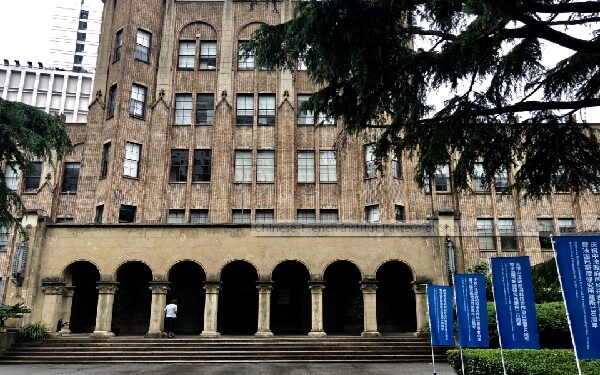
The Institut Pasteur of Shanghai, IPS, co-founded by Chinese Academy of Sciences, Shanghai municipal government and Institut Pasteur in France 14 years ago, has seen considerable accomplishments in terms of medical technology achievement transfer, transformation and innovation in recent years.
Through cooperation with multiple venture capitals, the institute generated over CNY100 million (USD15.7 million) of income annually via achievement transfer and transformation during the past two years and is expecting an income of hundreds of millions of yuan through contracts this year.
Institut Pasteur of Shanghai mainly engages in fundamental research on infectious diseases and subsequent research and development of antibodies, vaccines and micro-molecule drugs. It has made continuous breakthroughs in development of medicines such as avian influenza vaccines, norovirus vaccines, engineering vaccine for zika virus and medicines for treating diseases such as the hand-foot-and-mouth disease, Yicai Global learned.
Policies and Achievements
IPS successfully developed the Zika recombinant protein vaccine in March 2017. It also signed an agreement to partner with Chongqing Zhifei Biological Products Co. for the development and industrialization of “Zika virus engineering vaccine.”
“This outcome means that the institute has become the seventh organization conducting pre-clinical study on Zika vaccine in the world, and it is the first institution in Asia to do so. It is hopefully to carry out clinical trials in Africa in 2019,” Tang Hong, director of IPS, told Yicai Global.
“Tremendous changes have taken place in national policy on new medicine in recent years,” Tang said. “We started to notice the dividends brought by such policy to new medicine development about two years ago. They [the new policies] have enormously shortened the new medicine development chain so that laboratory inventions and creations are able to enter clinical study phases rapidly with the help of capitals, which has largely given play to innovation abilities of scientific research institutions,” he added.
The institute will put a first-class drug and a vaccine into the Phase I clinical trial this month. It is the tetravalent norovirus vaccine aimed at intestinal diseases, while the new medicine is an antimalarial drug, he disclosed.
“The artemisinin currently used to counter malaria has built up a tolerance, whereas the new medicine, with new targeting spot and mechanism, will bring good news to the 300 million plus newly-infected patients in the world every year,” Tang said.
Apart from commercialization of the research and development achievements, protection of intellectual property is also a focus of Institut Pasteur. “We have a special team for intellectual property operation and cooperate with the best patent firms in the country so as to strengthen our IPR protection and operation ability,” Tang told Yicai Global.
Global Network Collaboration
“IPS is leading the development of international institutes. With the advantage of resource of China and France, IPS joins hands with countries alongside the ‘Belt and Road’ Initiative to benefit the people with these achievements,” Zhang Jie, vice president of the Chinese Academy of Sciences, told Yicai Global.
Through the powerful global network of Institut Pasteur, “we have already cooperated with its research institutes in Asia, Africa, Latin America, Europe and Oceania to carry out the integrated project of pathogen discovery, detection and diagnosis as well as treatment and prevention in some countries along the Belt and Road.” Tang told Yicai Global.
“With over two billion people, vast area between 30 degrees north and 30 degrees south latitudes is the high-incidence area of tropical infectious diseases, the issue of poverty emanating from diseases is particularly prominent. The solution of infectious diseases by Chinese science in the field can not only move forward China’s ability to prevent and control infectious diseases, but also guarantee the effective promotion of its Belt and Road policy,” he added.
Tang also revealed that IPS will announce the establishment of an overseas multi-center clinical research base in November. “The conduct of clinical trials on our self-invented drugs is also the dividend of policies on Chinese new drugs,” Tang told Yicai Global.
Talent is the key factor for scientific research. In the past few years, IPS introduced policies for outstanding overseas-returned scientists and foreign scientists, which have increased he proportion of foreign scientists in IPS to more than 15 percent.
Four years ago, IPS introduced Doctor Dimitri Lavillette, an expert of arbovirus, from the French Centre National de la Recherche Scientifique, CNRS.
Doctor Lavillette told Yicai Global that he is satisfied with research and life in Shanghai. “I have another year in my contract. If possible, I would love to stay here longer,” he said.
In 2012, IPS introduced Doctor Jin Xia, Professor of Microbiology and Immunology at University of Rochester in the US. In April, Jin’s research group, together with another group led by Professor Huang Zhong, has made significant breakthrough in genetic engineering vaccine of Zika virus.
“Talents introduced by IPS are at the peak of their talent in various fields, especially those at the leading edge of the field,” said Tang.
“As for the research and development of common key bottleneck technology on diagnosis and treatment of infectious diseases, we have already started to establish the Shanghai Science Innovation Center,” Tang added.
Source: yicaiglobal.com